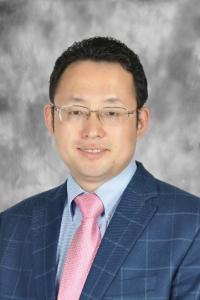Civil Infrastructure Systems Resilience: Models and Algorithms

Department of Civil and Environmental Engineering
University of Wisconsin-Madison
Automated vehicle (AV) following control impacts traffic safety, mobility and stability. Our empirical study showed that commercial AV following control became more unstable as the headway was set to a smaller value, implying a possible intrinsic trade-off between safety, mobility and stability aspects in AV following control design. We further analytically explained the underlying vehicle control mechanism that dictates this trade-off. We investigated a parsimonious linear AV following model that captures the first-order parameters on the safety, mobility and stability aspects. The string stability results indicate that the minimum headway considering safety buffer alone may be hardly achieved due to stability concerns, and practical AV control needs to either allow a longer headway to trade for string-stable traffic or conversely accommodate moderate string-instability to trade for a smaller AV following headway. These findings are verified by field experiments with production vehicles. Vehicles of different powertrains (e.g., electric vehicles vs. internal combustion engines) are compared. Methods of improving vehicle performance are explored. This work also provides a possible explanation of observed string instability of commercial AV following control (e.g., adaptive cruise control) and provides thoughts on improving existing technology and transportation systems.
Dr. Xiaopeng (Shaw) Li is currently an associate professor at the Department of Civil and Environmental Engineering at the University of Wisconsin-Madison (UW-Madison). Prior to joining UW-Madison, he was a faculty member at the University of South Florida. He has served as the director of one USDOT national university transportation center, National Institute for Congestion Reduction (NICR). He established the Connected and Automated Transportation Systems Lab that developed a multi-
scale CAV testbed including multiple full-scale and reduced-scale CAVs and associated system units. He was the holder of the Susan A. Bracken Faculty Fellowship and the Vasant Surti Fellowship at USF. He is a recipient of a National Science Foundation (NSF) CAREER award. He is a senior member of IEEE. He has served as the PI or a co-PI for a number of federal (NSF, USDOT, USDOE), local (e.g., state DOTs, UTCs, I-4 Corridor Program), and industry grants. He has published over 100 peer-reviewed journal papers. His major research interests include automated vehicle traffic control and connected & interdependent infrastructure systems.